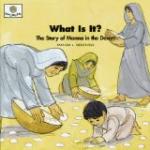“Really!” said Jill, who had imagined herself camping out under the stars with scorpions and spiders as bedfellows. “But if the men have to go on ahead of us, we shall have to get up early so as to let them pack and give them a start.”
The Arab gravely shook his head, with never a glimmer of a smile rear the mouth or eyes.
“Ah! no! you need not worry, a caravan of many persons has preceded us.”
“Many people!” ejaculated Jill. “What a lot of servants for two!”
“Let me explain! In Egypt, Arabia, or Persia, when we speak of sheep or horses we say so many ‘head,’ but not so of the camel. The camel is the most cherished possession of the Arab.
“There are three events which bring joy to us, and which are occasions of greatest festival, namely, the birth of a son, the birth of a she-camel, and the birth of a mare. The she-camel provides her master with food for both himself and his horses; for in an area, or season, where there is little water but an abundance of juicy grass in which the camel finds both food and drink, the camel’s milk is given to the horses in lieu of water, the master’s covering and tent are made of the hair, the waterless places are known to him through her. There are many other ways in which the animal is useful, and for which we daily return thanks to Allah, therefore we speak of them as persons, so many persons in a herd, because as the proverb says, ’God created the camel for the Arab, and the Arab for the camel.’
“Therefore for each resting-place there are two one-humped camels to carry all things necessary for your night’s sojourn.”
“Why one-humped?” asked the girl, who was of an inquiring turn of mind, and was getting slightly mixed with her first endeavour to grasp something of Eastern life.
“The one-humped or, as we say, the Dyemal-mai, which means water-camel, although they cannot carry so heavy a load as the Bactrian, can go even up to eight or nine days without water.
“There is only one well between here and the water, and it is usually surrounded by caravans, with water as thick as the mud in a London street in November, and dirtier, being polluted by the filth of man and beast.
“This we will pass, contenting ourselves with the water we carry for ablutions and cooking, and with wine or coffee to drink. If there is water to spare the camels can have it, if not they can go without, with the exception of the two that carry us.
“But you will find the going irksome even on Taffadaln, and so that you may rest, beautiful woman, whose name even I do not know, Howesha, which name, being translated, means that she is a past mistress in the art of grumbling, carries all that will give you repose if you should desire to stop before we reach our caravan.”
And just as though she understood, Howesha the Grumbler, opening wide her mouth, proceeded to give a series of very fine imitations, including those of a nest of spitting snakes, a sobbing woman, and a choking dog—all of which she concluded by her masterpiece, of a child masticating sticky sweets, when her master, to stop her querulous upbraidings, thrust dates between her polished teeth.




